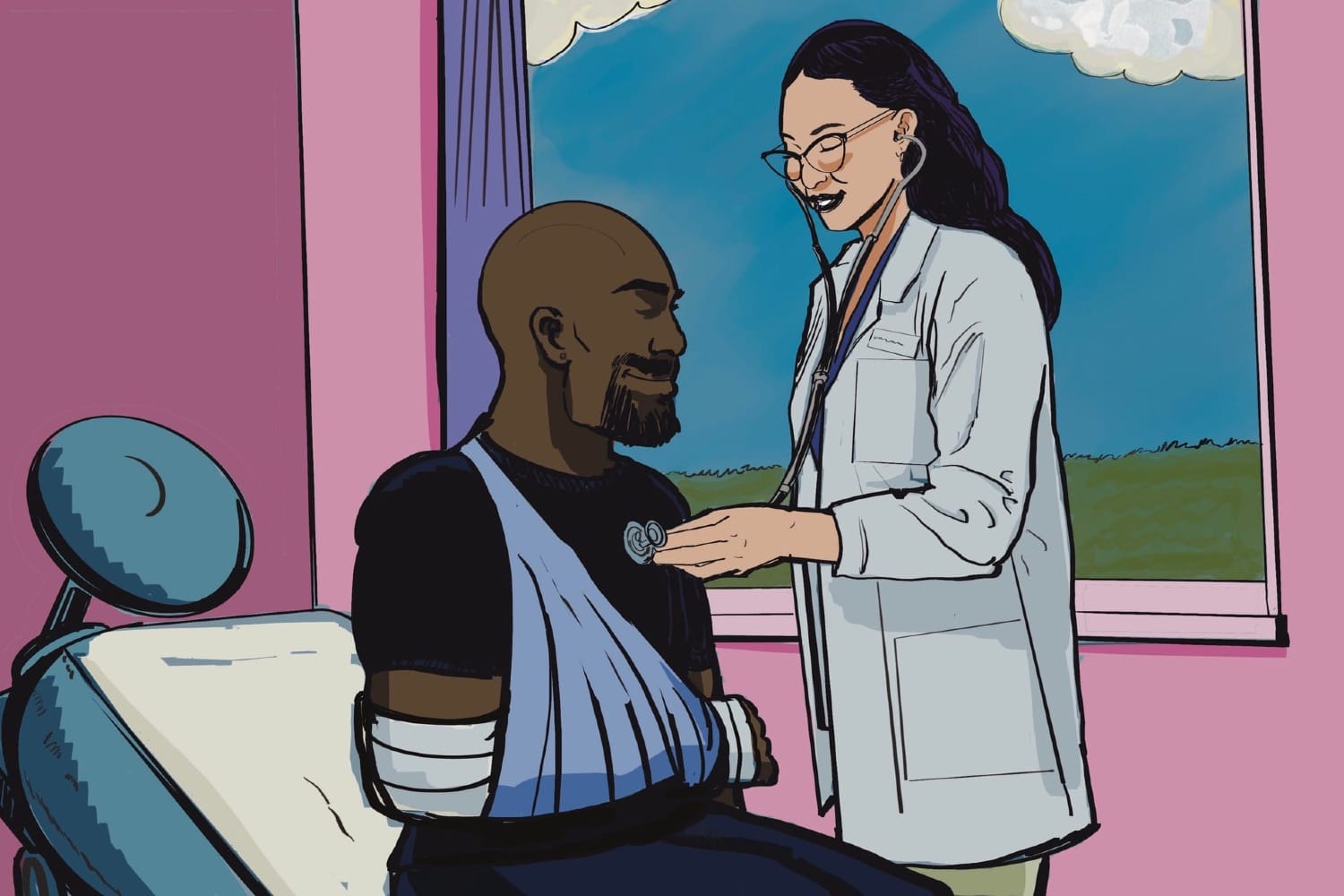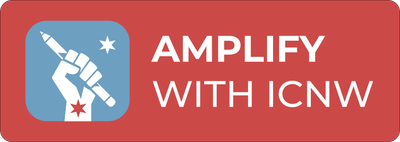Care Despite the Cuts

What if you had a tooth ache and couldn’t get it fixed? What if you couldn’t get regular care for a chronic disease like asthma or diabetes? What if you were injured and the thought of how to afford care was more painful than the injury itself?
For many, Community Health Centers are able to turn those “what if’s” into “worry not’s.” PrimeCare Health is one such place. With its anchor health center at Belmont and Central, PrimeCare’s nine facilities–nearly all on the Northwest Side–offer local residents primary care, routine wellness, dental, addiction recovery, behavioral health services, prenatal care and more.
PrimeCare Health vows to never turn anyone away, regardless of ability to pay. Period. Currently 65% of its patients are on Medicaid: people working low-paying jobs, older adults, students, people living in poverty, pregnant women, people with disabilities and others.
“We work with many people who have felt lost in the health care system. Many have had bad experiences. We treat everyone with dignity and make sure they know they are deserving of quality care. Now they have a full team who will take time with them, to help them understand the language of insurance and how it works. We make sure they know they belong here,” says Ricardo Rinconeno, PrimeCare’s director of communications.
The federal government is implementing sweeping changes to many of our society’s safety nets. Medicaid is one of those safety nets, the single largest source of health care in the country.
Because of Republican policies, it is estimated that 12 million Americans will lose health coverage.
With cuts to Medicaid looming thanks to the Big Beautiful Bill, PrimeCare can only brace for impact and hope for the best. How hard will they be hit?
Patient Driven Healthcare
On the Northwest Side, more than 247,000 people count on Medicaid for their healthcare needs, making PrimeCare’s work incredibly important to our community. PrimeCare became a Federally Qualified Health Center in 1999, and in 2021 they were awarded a gold health center quality leader (the top 10% of FQHCs). Today, PrimeCare employs 290 people dedicated to our communities’ health.
Community health centers like PrimeCare are very different than big health networks and hospitals because they are not in competition with one another. There is no need for million dollar ad campaigns. They collaborate and lift each other up. This creates a more supportive environment for providers and patients.
“PrimeCare is run by a board that is comprised of 51% current patients,” explains Lynn Hopkins, the CEO at PrimeCare. “That gives them the perspective of the patient, with first-hand knowledge and a vested interest in a patient-first approach. Even more, it becomes generational. People have come back to serve here who were once treated here as children. They become deeply engaged by serving and being served over many years.”
Medicaid Cuts: Complicated and Hidden
Lynn is confident PrimeCare will stay the course to serve its patients and day-to-day care will go on. Over its lifetime, the organization has existed during several administrations under both parties. She says that the changes in federal regulations today, though, are happening more quickly and with less due diligence than in the past.
According to the League of Women Voters, the Big Beautiful Bill “makes the largest cuts to Medicaid in the program’s history.” The number of people covered by Medicaid will drop because of changes to how states are required or allowed to provide funding, new penalties for reporting errors and new billing demands on some low-income or disabled patients.
But the biggest process changes for Medicaid relate to a work requirement. The fact is, more than 60% of Medicaid recipients are already working and the remainder are caregivers, retired, in school or are ill or disabled. So the new requirements won’t so much weed out fraud or abuse of the system, as become a hurdle for some people to get the coverage they deserve.
As Lynn describes it, “This is a huge, complex system.”
Imagine other processes with big institutions, like going to the DMV to replace a lost license or getting a rebate from a purchase. Administrative errors, missing mail, late submissions can derail an application. Or the time, red tape and paperwork can simply wear a person down to the point they give up.
For FQHCs like PrimeCare that treat all patients regardless of whether or not they are insured, the coming Medicaid cuts are a big deal. “As more people lose coverage, this will likely increase the amount of people we treat without compensation,” Lynn explains. “As the changes play out over time, we are proceeding cautiously and trying to find efficiencies where we can. We want to be thoughtful and strategic.”
Impact Goes Farther and Deeper
These deep cuts have a ripple effect. The slashes to Medicaid funding and coverage will have a profound impact on millions of people. We don’t yet know how institutions like community health providers are going to handle that impact.
A significant number of hospitals are at risk of closure due to Medicaid cuts, with an estimated 300 hospitals at immediate risk. A nearby casualty, Weiss Memorial Hospital in Uptown, is already shuttered.
This is not something that we can take back in a few years. Like other community health providers, PrimeCare is embedded in the fabric of our neighborhoods. Changes like this can have a generational effect on the communities these healthcare providers serve and the people they employ.
As big changes to Medicaid take effect, one thing will remain: the dedication of people like Ricardo and Lynn at PrimeCare Health. We can support their mission by helping spread awareness of their importance to our community and the challenges ahead. Please share this story and subscribe to read other Amplify stories.
Read more about how community members are helping ease the blow of Medicaid Cuts in Amplify:
Cutting a Lifeline: A Tale of Two Neighbors on Medicaid
Local Resources & Ways to Support
If this story spoke to you, please share with a friend and subscribe to Amplify.
Want to be a helper? Need help? Explore our lists of resources and volunteer opportunities by topic.
Come back soon for more information specific to Medicaid resources!
Subscribe to our newsletter.
Be the first to know - subscribe today



